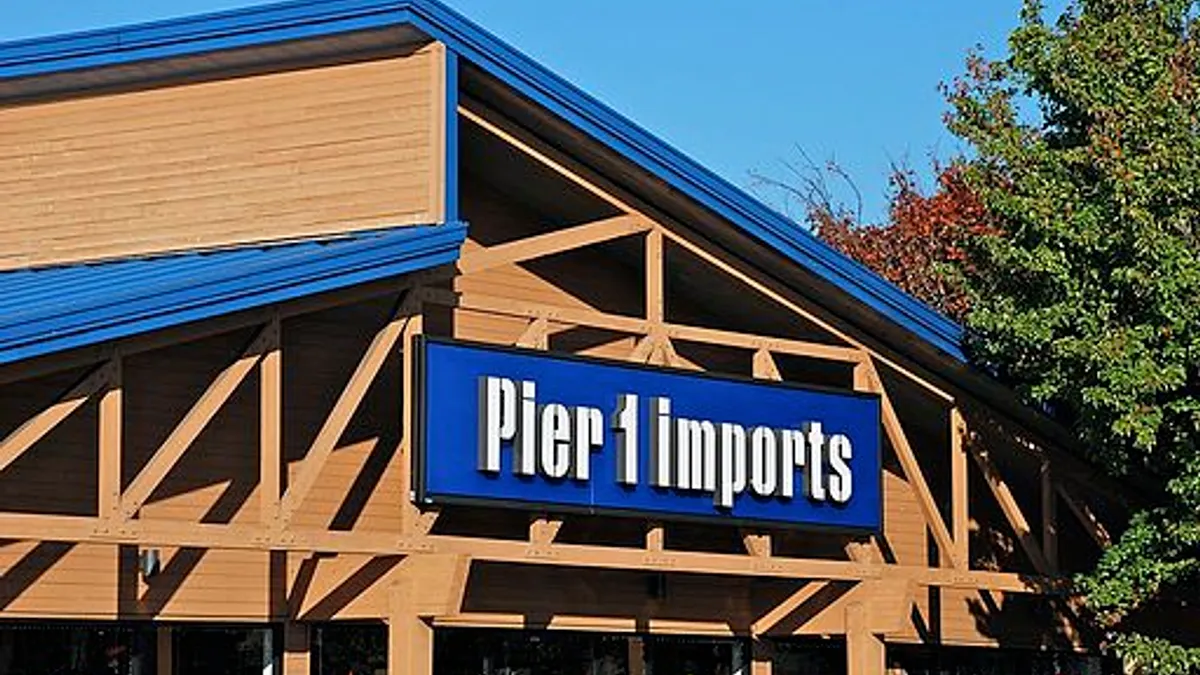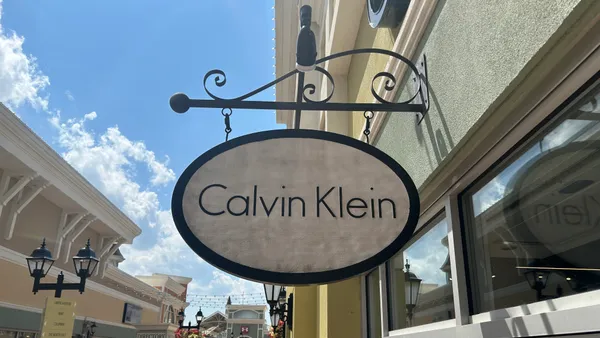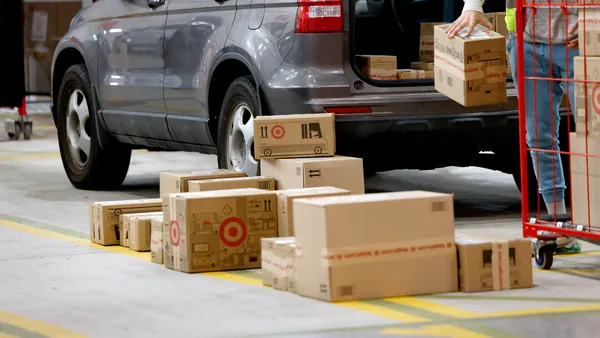Dive Brief:
- Fulfillment and operations fixes will play a major role in pulling Pier 1 out of the downward spiral of 11.4% same-store sales declines, said CEO Alastair James on an October earnings call.
- James said "pool distribution," speeding up fulfillment and consolidating three warehouses into one Columbus, Ohio facility — which happened three months ago — will bring greater speed and efficiency needed to re-engage customers in-store.
- CFO Nancy Walsh named "higher supply chain costs" among the factors putting pressure on gross margins, and the company is evaluating whether tariff hikes could hit margins further.
Dive Insight:
Pier 1's "pool distribution," in which one truck delivers to more than one location, is expected to double store delivery days to twice per week and meant to reduce stockouts and increase the chain's ability to replenish stores quickly, said the CEO.
James also mentioned the warehouse consolidation as a source of increased efficiency.
"The newly configured space which moves us from three buildings down to one is enabling faster processing, improved accuracy, and smarter packaging. We’re now positioned to take the learnings from this transformation and bring this model for the remainder of our supply chain network over time," said James.
But there is still a serious element of uncertainty behind these strategies to increase efficiency and boost margins since Pier 1 relies so heavily on imports from China.
"Approximately 59% of our sales in fiscal 2019 are expected to be generated from goods produced in China. And about half of that will consist of product classes that are subject to the 10% tariff that went into effect last week," said Walsh.
He added that the retailer is "evaluating" the effects of tariffs in the new year, when they will rise to 25%.
"Together with our sourcing team, we are proactively approaching this through a number of initiatives including supplier negotiations, diversifying our sourcing relationships and countries of origin, engaging in lobbying efforts with industry groups and strategic price increases," said Walsh.














